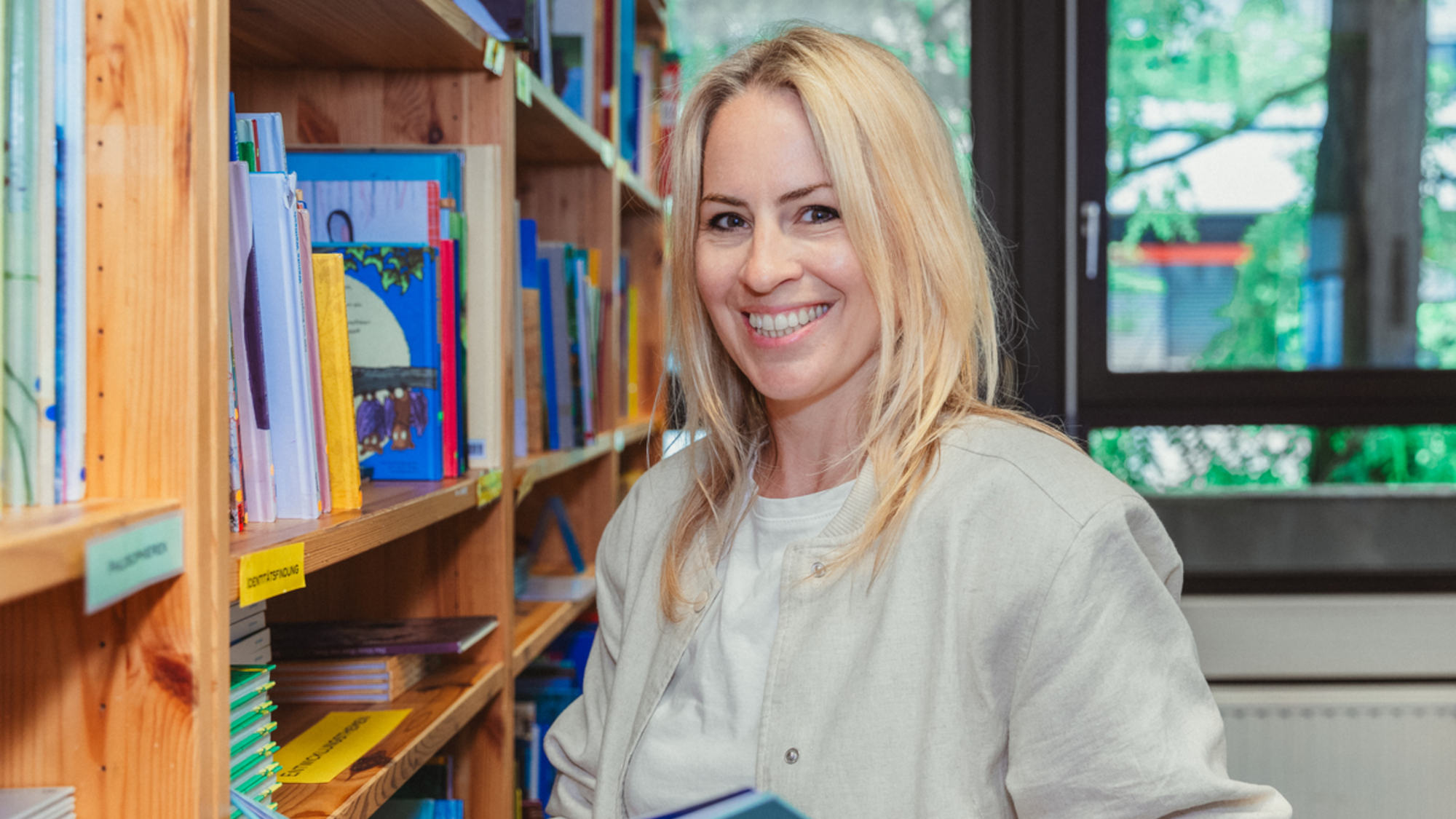
© Matej Meza / Universität Bremen
Teaching with Passion
A conversation with Jennifer Reiske, winner of the Berninghausen Prize
University members have the opportunity to nominate university teaching staff for the Berninghausen Prize for Excellence in Teaching until July 21, 2024. Jennifer Reiske explains why you should make use of this opportunity and what constitutes good teaching for her. Reiske is a schoolteacher with a secondment in German teacher education at the university and was awarded the Berninghausen Prize last year.
Ms. Reiske, what is particularly important to you in your teaching?
I enjoy teaching very much and my goal is that this radiates in my work, because teacher education has such an enormous importance to our society. Teachers often work at schools for 40 years after completing their degrees. Having competent teachers standing in front of the classes who enjoy being there makes an immense difference.
Obviously, your students noticed your love of teaching, because they nominated you for the Berninghausen Prize last year. Did you expect to win the prize?
I have been at the University of Bremen since 2010, teaching seminars and lectures, and advising and supporting students during internships and practical semesters. Over the years, I have often received positive feedback from students. Former students have reached out to me and told me how much my teaching has benefited them in their work as a teacher. Of course, this brings me great joy, as did the nomination for the Berninghausen Prize. Nonetheless, I did not expect this outcome.
What happens after the nomination?
The Berninghausen Prize is awarded in two categories. For the Student Prize, the students propose a teaching staff member and give a short explanation for their nomination. All university members can make suggestions for the Excellence in Teaching Award, and educators can also apply for the award themselves. The Academic Senate then appoints a selection committee, which chooses from all applications and nominations. Subsequently, the student body representatives must take a position on the nominees, and the deans of students are also given the opportunity to do so. I also had to provide a two-page summary about the essence of my teaching. This was an exciting task, because I have such clarity about my guiding principles. However, finding a way to compress these ideas succinctly to two pages was not so easy.
Two pages would be much too long for up2date. Can you summarize in a few sentences what principles shape your teaching?
Putting the head, heart, and hands to work in learning is important to me – both as a student and at school. Take, for example, the subject of philosophizing: I could theoretically explain to the students what is behind the concept, how it works, and how to use it in the classroom. Another option is to try it out in the seminar. By trying it themselves, students will hopefully experience for themselves what it means to philosophize and how much fun it can be. They are much more likely to make use of this as teachers later on.
In addition, it is important to me to involve students as actively as possible in teaching. This is something I consider when selecting topics. Of course, I have a teaching responsibility in my courses and have to ensure that certain topics are addressed. I create a syllabus before the beginning of each course, but this is always provisional. In the first session, I ask the students about their interests and then revise the syllabus. I try to combine theory and practice so that the students’ work directly benefits the teachers.

© Matej Meza / Universität Bremen
What does that look like?
I’ll illustrate this using the “Learning to Read Made Easy” seminar, which I taught during the winter semester 2022/23. The students examined research literature on various aspects of learning to read. These explained, for example, how to improve children’s desire to read or help them read more fluently. The students presented the results from their research literature in small videos and created additional teaching and learning materials. We uploaded their work to the itsLearning platform, which teachers in Bremen use for lesson planning, among other things. Our goal was for teachers to be able to learn quickly about new methods that they can apply directly in the classroom. The feedback I received is that our presentations have been both well received and used by the teachers. It is very encouraging for students to know that others benefit from their work, so this is a real win-win scenario!
What does the award mean to you personally?
I see the prize primarily as an expression of appreciation of my work. I am pleased that the students have noticed how much passion I put into my teaching and cited this explicitly in their nomination. The prize also made me curious, for example about the lawyer Lars Viellechner’s courses, who also won the student prize in 2023. I would be interested in visiting one of his courses to observe his teaching. Overall, I like the fact that due to the award there are many conversations about what constitutes good teaching. I believe that this is extremely important.
Further Information
University members have the opportunity to nominate university teaching staff for the Berninghausen Prize for Excellence in Teaching on the website until July 21, 2024.